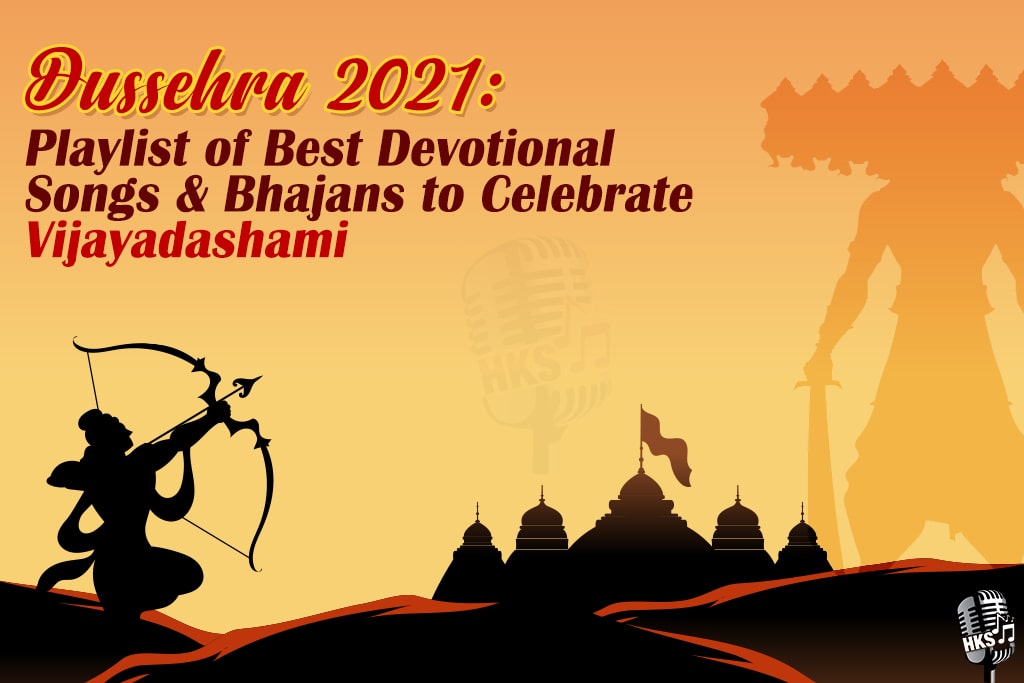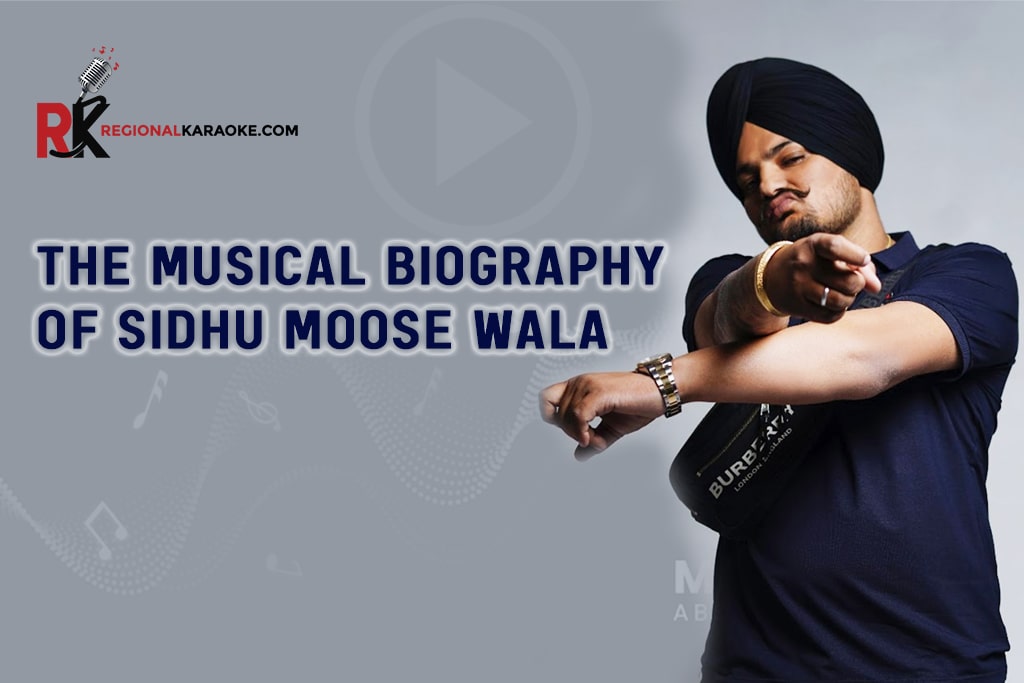Christmas Store-Wide Karaoke Sale | 40% Off | USE COUPON CODE - RKXMAS40
10 Best South Indian Singers You Should Know About [UPDATED]

- 1. S. P. Balasubrahmanyam
- 2. K. S. Chithra
- 3. M. S. Subbulakshmi
- 4. S. Janaki
- 5. Hariharan
- 6. P. Susheela
- 7. Yesudas (K. J. Yesudas)
- 8. Chinmayi Sripada
- 9. S. Thaman
- 10. Sid Sriram
- Accessing Karaoke Songs of These South Indian Legends for Multilingual Performances
- Perks of Using Karaoke Tracks for Your Performance:
- Using Online Platforms for Karaoke Tracks
- Conclusion
South India has produced some of the most admired and respected voices in the Indian entertainment industry. These singers have contributed significantly to film and cultural music across languages like Tamil, Telugu, Malayalam, and Kannada. Their talent, dedication, and ability to connect with listeners have made them household names in the South and the entire country. If you want to explore the voices that have shaped South Indian music over the years, here are ten singers you should know.
1. S. P. Balasubrahmanyam
Born on June 4, 1946, in Konetammapeta, Andhra Pradesh, Sripathi Panditaradhyula Balasubrahmanyam, affectionately known as SPB, hailed from a family with a rich musical heritage. His father, S. P. Sambamurthy, was a renowned exponent of Harikatha, a Hindu religious discourse. SPB's initial foray into music was mainly self-driven. Despite enrolling in an engineering program, his passion for music led him to participate in various singing competitions, setting the stage for his illustrious career.
SPB's playback singing debut came in 1966 with the Telugu film Sri Sri Sri Maryada Ramanna. His mellifluous voice and impeccable diction quickly garnered attention, leading to opportunities across Tamil, Kannada, Malayalam, and Hindi cinema. Over a career spanning more than five decades, he recorded over 40,000 songs, a feat recognized by the Guinness World Records. His collaborations with legendary composers like Ilaiyaraaja and A. R. Rahman resulted in timeless classics that remain beloved today.
SPB's contributions were acknowledged with numerous accolades, including six National Film Awards for Best Male Playback Singer and the Padma Bhushan in 2011. His demise on September 25, 2020, marked the end of an era, but his legacy endures through his vast body of work, which continues to inspire and resonate.
2. K. S. Chithra
Krishnan Nair Shantakumari Chithra, born on July 27, 1963, in Thiruvananthapuram, Kerala, exhibited musical talent early on. Encouraged by her father, a government official, and classical music enthusiast, she pursued formal training in Carnatic music. Chithra earned a scholarship from the Central Government for advanced studies in music, which paved the way for her future successes.
Chithra's playback singing career commenced in 1979 with the Malayalam film Attahasam. Her versatility and emotive singing made her a sought-after vocalist in South Indian cinema. She has recorded over 20,000 songs in various languages, including Tamil, Telugu, Kannada, Hindi, and more. Her collaborations with composers like Ilaiyaraaja and A. R. Rahman have produced numerous chart-topping hits.
Chithra's exceptional talent has been recognized with six National Film Awards and numerous state awards. She was honored with the Padma Shri in 2005 and the Padma Bhushan in 2021, underscoring her significant contributions to Indian music.
3. M. S. Subbulakshmi
Madurai Shanmukhavadivu Subbulakshmi, born on September 16, 1916, in Madurai, Tamil Nadu, was introduced to music by her mother, Shanmukhavadivu, a veena player. Displaying prodigious talent, Subbulakshmi began performing at a young age, her first recording being released when she was just 10 years old.
Subbulakshmi's performance at the Madras Music Academy in 1932 marked her ascent in the Carnatic music world. In 1966, she broke barriers as the first Indian musician to perform at the United Nations General Assembly, bringing Carnatic music to the global stage. Her renditions of devotional songs and classical compositions are revered for purity and emotive depth.
Awarded the Bharat Ratna in 1998, Subbulakshmi's influence on Indian classical music is immeasurable. Her recordings continue to serve as benchmarks for aspiring musicians, and her life remains a testament to the transcendent power of music.
4. S. Janaki
Sistla Janaki, born on April 23, 1938, in Repalle, Andhra Pradesh, grew up in a musically inclined family. Her passion for music was evident early on, leading her to pursue formal training in classical music. Janaki's journey from a small-town girl to a celebrated playback singer is a story of talent and perseverance.
Janaki's playback career began in 1957 with the Tamil film Vidhiyin Vilayattu. Her ability to adapt to various musical styles and emotive delivery made her a favorite among composers. Over five decades, she recorded over 48,000 songs in multiple languages, making her one of the most prolific singers in Indian cinema.
Janaki received four National Film Awards and numerous state awards throughout her career. In 2016, she announced her retirement from professional singing, leaving behind a rich legacy that continues to inspire.
5. Hariharan
Hariharan was born on April 3, 1955, in Thiruvananthapuram, Kerala, to famous Carnatic vocalist H.A.S. Mani and Alamelu Mani. He was raised in Mumbai, where he was exposed to Hindustani and Carnatic music. Hariharan trained in Hindustani classical music and developed a unique vocal style blending traditional nuances with modern sensibilities.
Hariharan began his playback singing career in the Tamil film Thamizhil Ezhutthu (1977), but his breakthrough came with the song “Uyire Uyire” in Bombay (1995), composed by A. R. Rahman. This track brought him national fame. He became known for his soulful voice and expressive delivery, especially in romantic and semi-classical songs.
Apart from playback singing, Hariharan was one half of the popular fusion band Colonial Cousins with Leslie Lewis, which pioneered Indian fusion music. He has sung in multiple languages and won several awards, including the National Film Awards and Filmfare Awards South. His versatility spans ghazals, bhajans, pop, and film music.
6. P. Susheela
Pulapaka Susheela was born on November 13, 1935, in Vizianagaram, Andhra Pradesh. She received formal training in Carnatic music at a young age and completed a diploma in music from Queen Mary's College in Chennai.
P. Susheela began her film singing career in 1952 with the Telugu film Kannatalli. She quickly rose to fame for her sweet and crystal-clear voice. Over the years, she became the voice of South Indian cinema, especially during the 1950s to 1980s, singing over 40,000 songs in Telugu, Tamil, Kannada, Malayalam, and Hindi.
She holds the Guinness World Record for recording the highest number of songs in Indian cinema. P. Susheela received numerous honors, including five National Film Awards and the Padma Bhushan in 2008.
7. Yesudas (K. J. Yesudas)
Kattassery Joseph Yesudas was born on January 10, 1940, in Fort Kochi, Kerala. He started learning classical music under his father and later trained at the Swathi Thirunal College of Music in Thiruvananthapuram.
Yesudas made his playback singing debut in 1961 with the Malayalam film Kaalpadukal. His voice, a perfect blend of divinity and emotion, made him a sensation. He became the go-to voice for devotional, classical, and romantic songs across Malayalam, Tamil, Telugu, Kannada, and Hindi cinema.
His long-standing association with the flute makes Yesudas’s artistry even more unique. While he is not a flutist himself, he has often emphasized his admiration for the instrument’s meditative quality. His live performances and devotional songs feature the flute as a key element, complementing his voice with soothing instrumental interludes. The blend of his vocals with flute accompaniments has become a signature style in many of his renditions, especially in bhajans and semi-classical compositions. Some of his songs play on flute for beginners based on ragas like Mohanam, Kalyani, or Hamsadhwani. The structured flow of his music provides a natural way to study tone quality and emotional delivery, making it both a joy to listen to and a rich resource for learning.
Yesudas is a true icon with over 100,000 songs recorded in 14 languages. He has won eight National Film Awards and numerous state and international honors, including the Padma Vibhushan. His bhajans and classical renditions remain unmatched in purity and devotion.
8. Chinmayi Sripada
Chinmayi Sripada was born in Mumbai on September 10, 1984, but grew up in Chennai. She trained in Hindustani and Carnatic music from a young age under the guidance of her mother, who is also a singer.
Chinmayi made her debut with the Tamil film Kannathil Muthamittal (2002) with the song “Oru Dheivam Thanta Poove,” composed by A. R. Rahman. This instantly catapulted her to fame and earned her a National Award.
Besides singing, Chinmayi is also a voice actor, entrepreneur, and social activist. She has lent her voice to leading actresses in South Indian films and has sung in several languages, including Tamil, Telugu, Hindi, and Kannada. She continues to contribute actively to the industry through her music and advocacy.
9. S. Thaman
Thaman Sivan, popularly known as S. Thaman, was born on November 16, 1983, in Andhra Pradesh into a family of musicians. He started his musical journey as a drummer and keyboard programmer, working under legendary composers like Ilaiyaraaja and M. M. Keeravani.
Thaman debuted as a composer with the film Malli Malli (2009) and rose to fame with blockbuster albums like Dookudu, Ala Vaikunthapurramuloo, and Bheemla Nayak. As a singer, his energetic voice is a staple in many of his compositions, bringing mass appeal to his tracks.
Today, S. Thaman is among the top music directors and playback singers in Telugu cinema. His fusion of EDM, Indian rhythms, and catchy hooks has redefined South Indian film music for a younger generation.
10. Sid Sriram
Sid Sriram was born in Chennai and raised in the United States. He studied music production at Berklee College of Music in Boston and was trained in Carnatic music by his mother.
Sid's big break came with the Tamil song “Adiye” from Kadal (2013), composed by A. R. Rahman. His soul-stirring voice, blending R&B, Carnatic, and pop elements, captivated audiences instantly.
With his raw, emotive singing style, Sid Sriram has brought a new voice to Indian playback music. His songs, such as “Ennodu Nee Irundhaal,” “Samajavaragamana,” and “Srivalli,” showcase his ability to transcend genres while staying rooted in tradition.
Accessing Karaoke Songs of These South Indian Legends for Multilingual Performances
Finding the right karaoke tracks is essential for individuals aspiring to learn different Indian languages and sing songs of South Indian legends in various regional languages. One effective method is to utilize online platforms, which provide a wide range of karaoke tracks spanning multiple languages and genres.
Perks of Using Karaoke Tracks for Your Performance:
Accessibility: One of the primary perks of using karaoke for your performance is its accessibility. Karaoke tracks are readily available online, at karaoke bars, and even on mobile apps, making it easy for performers to access a vast repertoire of songs across different genres and languages. Whether a beginner or a seasoned performer, karaoke provides a convenient platform to showcase your talent without needing live accompaniment.
Variety of Songs: Karaoke offers diverse songs spanning various genres, languages, and eras. From classic ballads to contemporary pop hits, karaoke libraries cater to various musical tastes and preferences. This versatility allows performers to experiment with different styles of music, explore new genres, and tailor their performances to suit different audiences and occasions.
Practice and rehearsal: Karaoke is an invaluable tool for practice and rehearsal. It allows. It allows performers to fine-tune their vocal technique, timing, and stage presence in a low-pressure environment. By regularly singing karaoke, individuals can improve their singing skills, build confidence, and overcome stage fright, ultimately enhancing their overall performance.
Flexibility and Adaptability: Karaoke enables performers to adapt quickly to different performance settings and requirements. Whether singing at a karaoke bar, a private event, or a professional gig, karaoke allows seamless integration into various performance contexts. Additionally, performers can adjust the key and tempo of karaoke tracks to better suit their vocal range and style, ensuring a comfortable and polished performance.
Using karaoke songs for your performance offers numerous perks, including accessibility, variety, practice opportunities, flexibility, audience engagement, and creative expression. Whether you're a casual singer looking to have fun with friends or a professional performer honing your skills, karaoke provides a versatile and enjoyable platform to showcase your talent and connect with audiences.
Using Online Platforms for Karaoke Tracks
Singing your favorite tunes has never been easier, thanks to the rise of online karaoke platforms. With just a smartphone or computer, singers can now explore thousands of karaoke tracks across various languages and genres—from Bollywood to regional classics—instantly.
Among the most loved are Tamil Karaoke Songs, which bring the soul of Tamil cinema to your living room. Whether a timeless melody by K.J. Yesudas or a modern hit by A.R. Rahman, singers can find high-quality instrumental versions that help them practice, perform, or simply enjoy singing along. Tamil music's lyrical beauty and expressive style make these tracks especially rewarding for those who connect deeply with the language.
Equally popular are Kannada Karaoke Songs, offering access to the rich musical heritage of Karnataka. From the golden era of Dr. Rajkumar to contemporary artists, these tracks are perfect for singers who appreciate the lyrical depth and unique rhythms of Kannada music. Having karaoke tracks in Kannada means you can relive your favorite songs with clarity and precision—perfect for home practice, social gatherings, or competitions.
Conclusion
These singers reflect the richness and variety of South India’s musical landscape. Each artist has built a distinct identity and played a significant role in shaping the region’s sound. Their voices continue to inspire new talent and resonate deeply with audiences across generations. With songs that echo through homes, festivals, and cinemas, their legacy remains firmly rooted in the heart of Indian music






